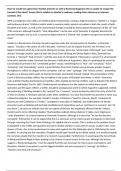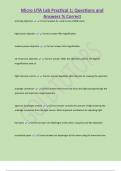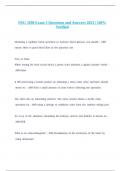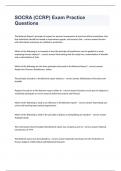Essay
A* essay on madness in Hamlet (English Literature A Level)
The essay title is: How far would you agree that ‘Hamlet presents us with a flawed protagonist who is unable to escape the turmoil of his mind?’ Perfect A* essay which covers context, critics, language techniques and has a clear argument with many quotations.
[Show more]








